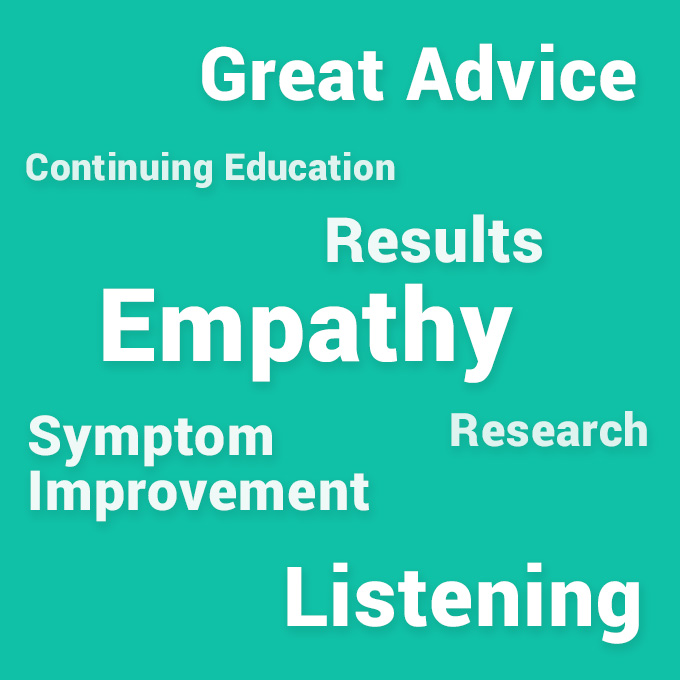Updated 12/11/2023
A good therapist is essential to getting a proper diagnosis, finding an effective treatment plan, learning to live well with the symptoms of a mental health condition, and improving your quality of life overall. If you or a family member are searching for a potential therapist, first and foremost, know this: It’s not unusual to need to visit multiple therapists before you find one that you feel is a good fit for you.
That said, there’s a process you can follow to ensure you seek out the right therapist or mental health professional to work with as soon as possible. We understand that figuring out how to find the right therapist can be a daunting experience. That’s why we put together this guide, to teach you how to get a therapist who can treat you and your specific needs.
Learn everything you need to know about finding a therapist here.
1. Utilize an Online Therapy Provider
Online therapy providers can be a great resource for those who live in small, rural communities without a lot of access to good therapists or mental health services. It’s also an excellent option for people who don’t drive, have mobility issues, juggle demanding schedules, or are looking for more affordable options for therapy — online therapy can potentially be more affordable than your local in-person treatment options.
So how does online therapy work ? Online therapy works similarly to in-person therapy, except each therapy session with your therapist is via a digital platform. When you’re looking for online therapy providers, be sure to search for therapists who accept your type of health insurance or insurance provider and specialize in the type of therapy you need.
2. Search Locally
If time is a concern, finding good therapists locally can remove the headache of having to tack on extra hours to get to and from appointments. Seeing a licensed therapist near you means you can get the appointments you need in less time, which can be a win-win if you’ve got a hectic schedule and are already feeling stressed about adding one more thing to your plate. However, depending on where you live, therapy session options may be more limited.
3. Seek Reputable Reviews or Ask a Friend
When looking for how to find a therapist, don’t discount reviews (but be sure they’re from reputable sources). Recommendations from friends and family members can be a good way to go, too. When you’re asking people you already trust, you can be confident in the insight they share about a therapist’s style and approach to counseling.
4. Use the Resources You Have
Students might find mental health services in their university’s counseling center. Those in the working world may be able to find help via their company’s human resource department. If you’re looking for a faith-based counselor or family therapy, your place of worship or their governing offices may offer suggestions.
“In the search for the right therapist, it’s important to consider reputation. Remember that finding the right fit is important. Asking friends and family who are in therapy for recommendations can be the start of finding a therapist. It’s important to ascertain if reviews of the therapist exist and if they’re honest and insightful. Not all therapists have a strong online presence and may rely on word of mouth.”
5. Make Sure They’re Properly Licensed
One of the most important issues to consider when learning how to find a therapist is making sure that any therapist you’re considering is properly licensed. This means they have the education and skills necessary to perform their job. Many therapists will display their licenses or accreditation from the American Psychological Association on the wall of their offices.
If not, you can ask them for this information or search online. You can use one of the several license lookup tools, such as the American Psychological Association’s therapist search tool or the Association of State and Provincial Psychology Boards lookup tool.
6. Consider Why You Need Therapy
Just like medical doctors, mental health professionals often concentrate on one or more specialties. They can be expertly trained to treat specific conditions or skilled in certain therapeutic modalities or types of therapy. They may be a family therapist, a marriage counselor, a therapist who specializes in group therapy, or someone who focuses on treating one or more mental health conditions.
Once you have answered yes to the question, do I need therapy, it’s time to begin your journey on how to find a good therapist. The first step is to ask yourself some questions about what you’re looking for and need from a therapist. Some things to consider include:
a. What do you want to get out of therapy? In your search for how to find a therapist, it’s important to honestly assess your needs. Having identified goals is key in making sure you get the most out of therapy.
- Are you looking for insight into your behaviors?
- Are you hoping to improve your relationships?
- Do you need help dealing with grief?
- Are you seeking to learn how to manage the symptoms of a mental health condition?
b. How much time and other resources are you willing to commit to therapy? Another important aspect to consider when deciding on a licensed therapist is how much effort, time, and money you’re willing to invest. How often can you meet with a therapist? Are you willing to do “homework” if they assign it? How much are you willing to spend on a therapist?
Of course, there are some practical considerations you’ll want to include on your how-to-find a therapist journey. Think about things like:
- Are the therapist’s office hours convenient to your schedule?
- Where is the therapist located?
- Do they take your insurance?
- Do they offer a sliding scale fee?
If you are concerned with therapy costs, there are other options to consider as well.
“Before searching for a therapist to work with you, think about or list out what you want to work on during your time in therapy. By figuring that out, you can narrow your search for a therapist with that particular expertise. Just because a friend/family member benefits from one family therapist doesn’t mean that therapist will be the right fit for you.”
7. Search for a Therapist with Specializations
Looking for someone with the right specialization can be another key part of knowing how to find the right therapist. Most therapists focus their energies on a single aspect of counseling, like grief, child or family therapy, or treatment of a specific condition. Therapists can be skilled in specific types of therapy, including behavioral therapy for modifying detrimental behaviors, psychodynamic therapy to explore emotional patterns, and commitment therapy to facilitate personal acceptance and committed action. As a result, Iit can be helpful to narrow your search by looking for someone whose concentration matches your needs.
8. Ask the Right Questions Before the First Appointment
Try not to stress too much before your first appointment. Your therapist will likely ask you some general life history questions, health history, and what issues you’re struggling with. Some questions you might want to ask during your first appointment with a mental health professional include:
1. How many years have you been practicing?
2. Are you licensed in this state?
3. Do you have a specialty or area of expertise?
4. Do you accept health insurance?
5. Do I need to pay you upfront, or will you bill my insurance company or insurance provider?
6. What is your general philosophy and approach toward healing?
“Take your time in asking a potential therapist the questions you feel are important to you. Most therapists offer some level of consultation to be sure the client and therapist can work together. Don’t rely on the therapist to ask all the questions — have questions ready about the things that are important to you, like what their comfort level in a particular issue is, or what their experience is in working with a specific diagnosis. This is just as much an interview for you as it is for them.”
9. Don’t Settle for Any Therapist
There’s nothing wrong with telling a therapist that you don’t think the two of you are a good fit. In fact, your long-term prognosis will be vastly improved if you find a different therapist who you can form a bond with. In the end, working with someone you don’t connect with isn’t in your best interest.
The bottom line is you should never settle for just any therapist. Keep looking until you find someone who feels right, even if that means going through multiple therapists. When you’re able to confide in them and share all your feelings and personal thoughts, you’ll reap the full benefits of therapy and experience substantially enhanced healing. Therapy can be a lot of deep, difficult work, but it’s worth it, and so are you, so be sure that taking the time to find the right person is part of your process.
Find the Right Fit with Talkspace
Talkspace online therapy offers a new take on getting the mental health help you’re looking for. By eliminating some of the common stressors associated with therapy — getting to and from appointments, dealing with traffic, paying for an extra expense, needing more time to have your appointments — we’re making the process of healing easier, more convenient, and more affordable.
Learn how Talkspace can help you figure out how to find a therapist who can change your life.
Sources:
1. APA Psychologist Locator. Locator.apa.org. https://locator.apa.org/. Accessed June 7, 2022.
2. Verify a License. Association of State and Provincial Psychology Boards (ASPPB). https://www.asppb.net/page/LicenseLookup. Accessed June 7, 2022.
Talkspace articles are written by experienced mental health-wellness contributors; they are grounded in scientific research and evidence-based practices. Articles are extensively reviewed by our team of clinical experts (therapists and psychiatrists of various specialties) to ensure content is accurate and on par with current industry standards.
Our goal at Talkspace is to provide the most up-to-date, valuable, and objective information on mental health-related topics in order to help readers make informed decisions.
Articles contain trusted third-party sources that are either directly linked to in the text or listed at the bottom to take readers directly to the source.




